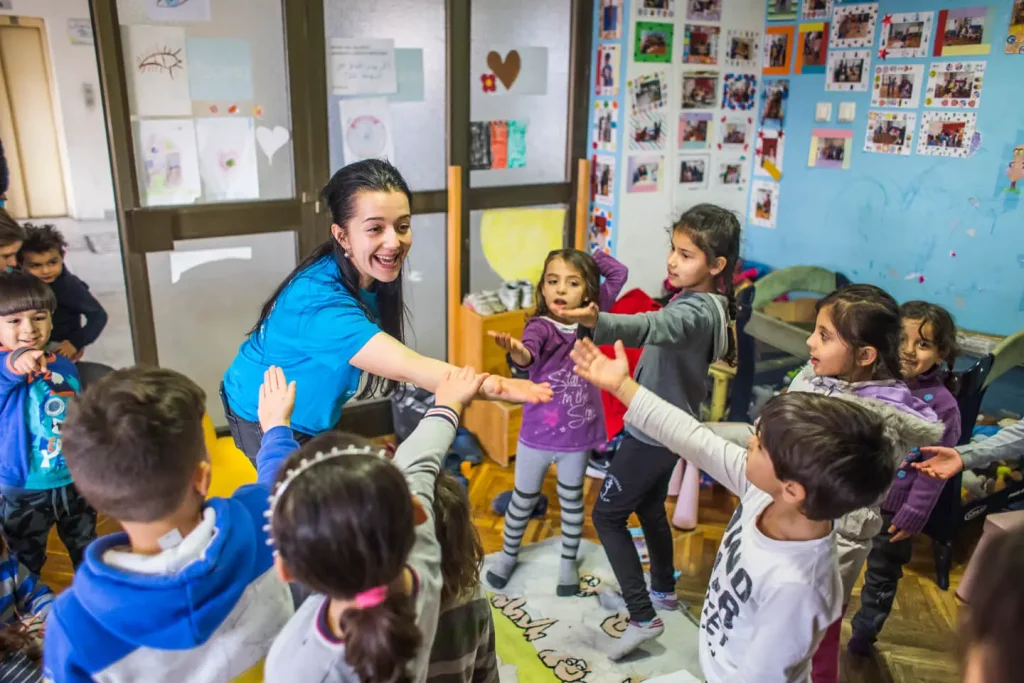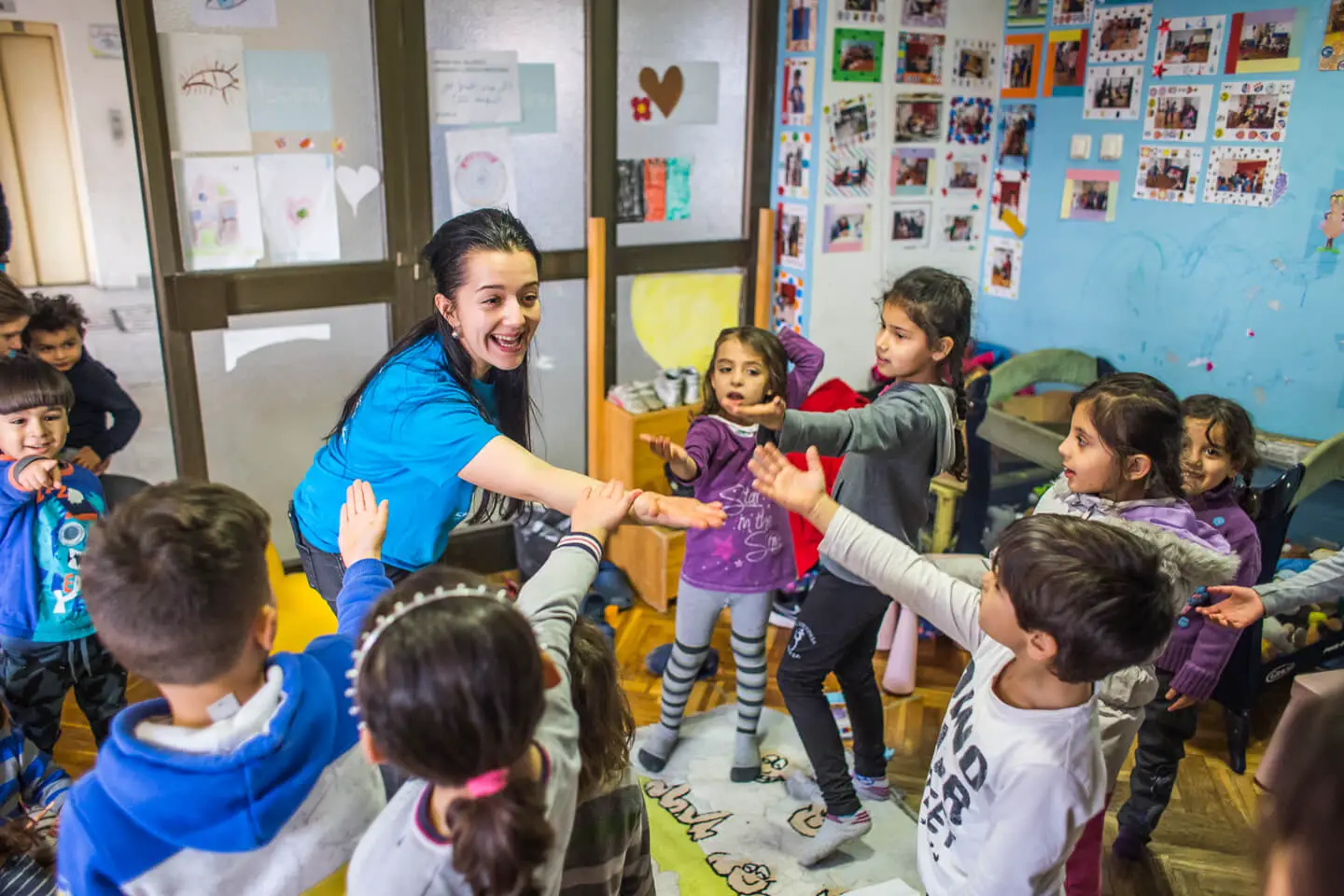
August 22, 2020 – Sandra Špoljarić, along with her colleagues Petra Žukina and Mia Kevo, wrote a handbook titled “Working with Refugee Children” and held three national and global webinars on this topic.
The handbook was created to share their experience of working with refugee children through various topics such as the definition of refugee children in the world and children’s rights, understanding risk and protective factors, stress and trauma in refugee children, work recommendations, knowledge and skills required for group and individual work. “We designed it to be ‘at hand’ to all future professionals, volunteers, and people of goodwill interested in working with refugee children. At the same time, through educational activities, creative and sports activities and psychosocial programs, development in a healthy environment was encouraged, including the children and their opinions,” said Sandra.
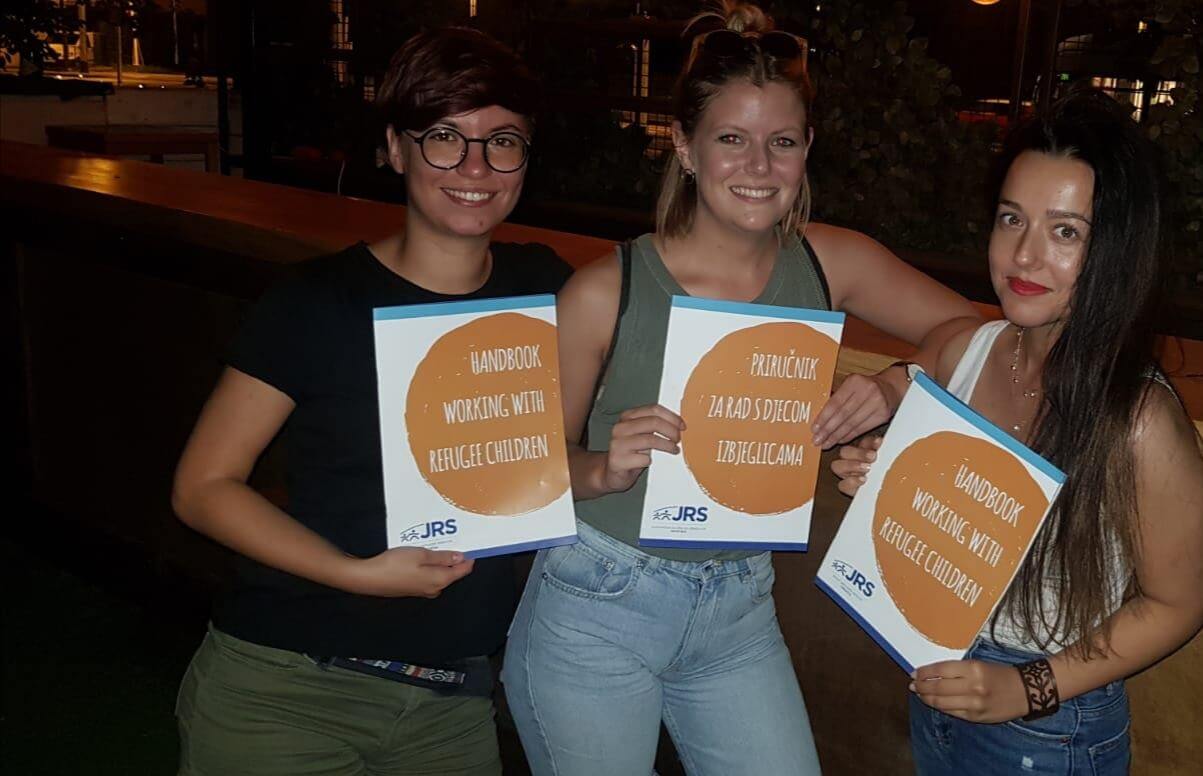
After an informal work experience in London, Sandra enrolled in the MA Childhood Studies and Children’s Rights in Potsdam, Germany, and at the end of her studies she came up with the idea that she could do an Erasmus + internship in Zagreb at the Shelter for Asylum Seekers with Refugee Children. The dream came alive and she started working for the Jesuit Refugee Service Croatia in Zagreb on the project Child-Friendly Space, which was implemented in cooperation with UNICEF.
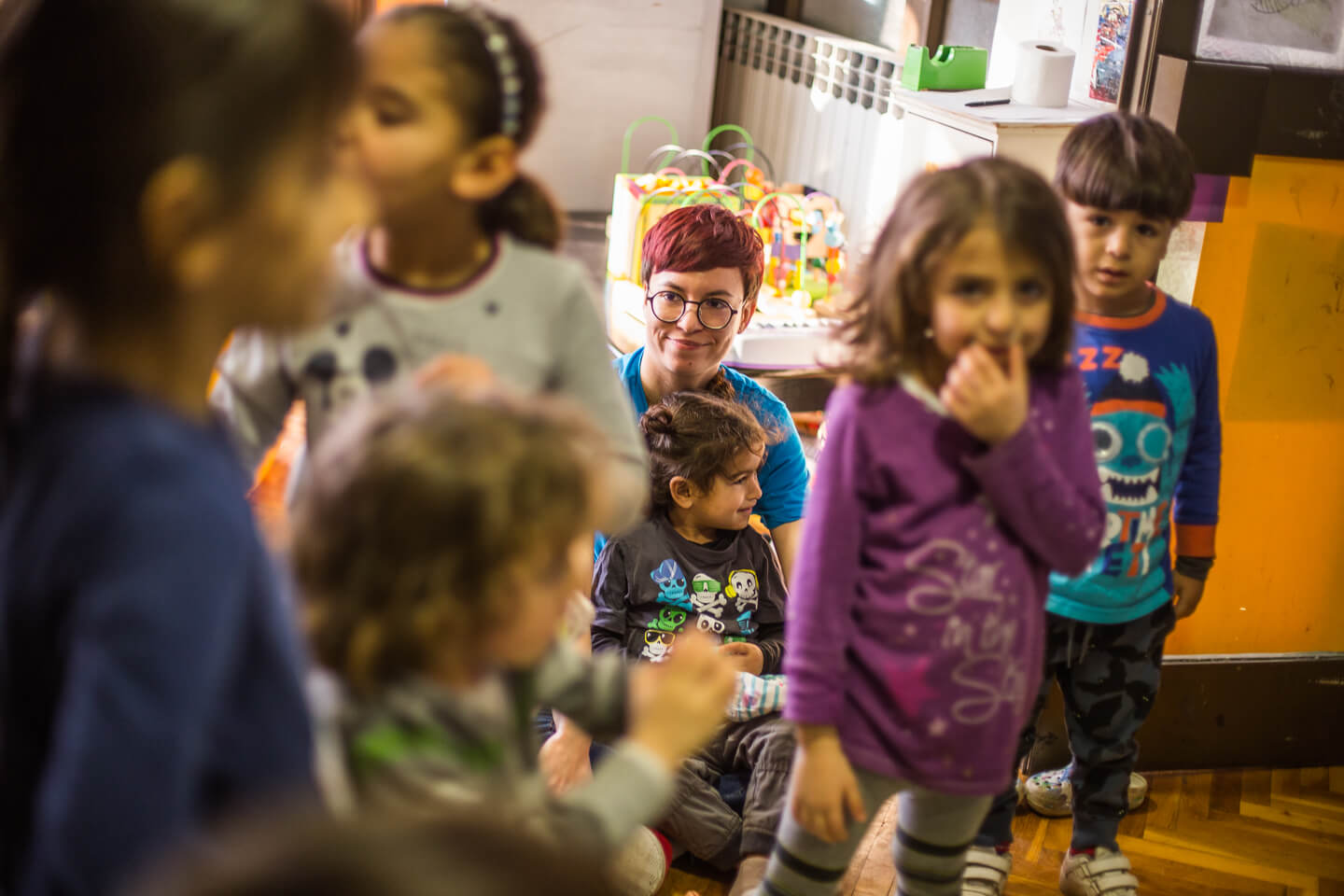
Kristóf Hölvényi | JRS Hrvatska
The incentive to work in such an environment is resistance to the marginalization of certain groups and children, especially children, due to situations where they cannot defend themselves or have been brought into them on their own. “Given my studies in Germany, my contribution was to make me aware that the Convention on the Rights of the Child speaks about every child’s rights, regardless of race, religion, cultural background, or where the child is,” said Sandra, a Master of primary education. The Convention deals with the obligations of adults towards children and the responsibilities of many social factors regarding the protection of children. The goal of the whole Child-Friendly Space project was to provide children with a protected and stimulating environment during or after a crisis where they could get the necessary support and security.
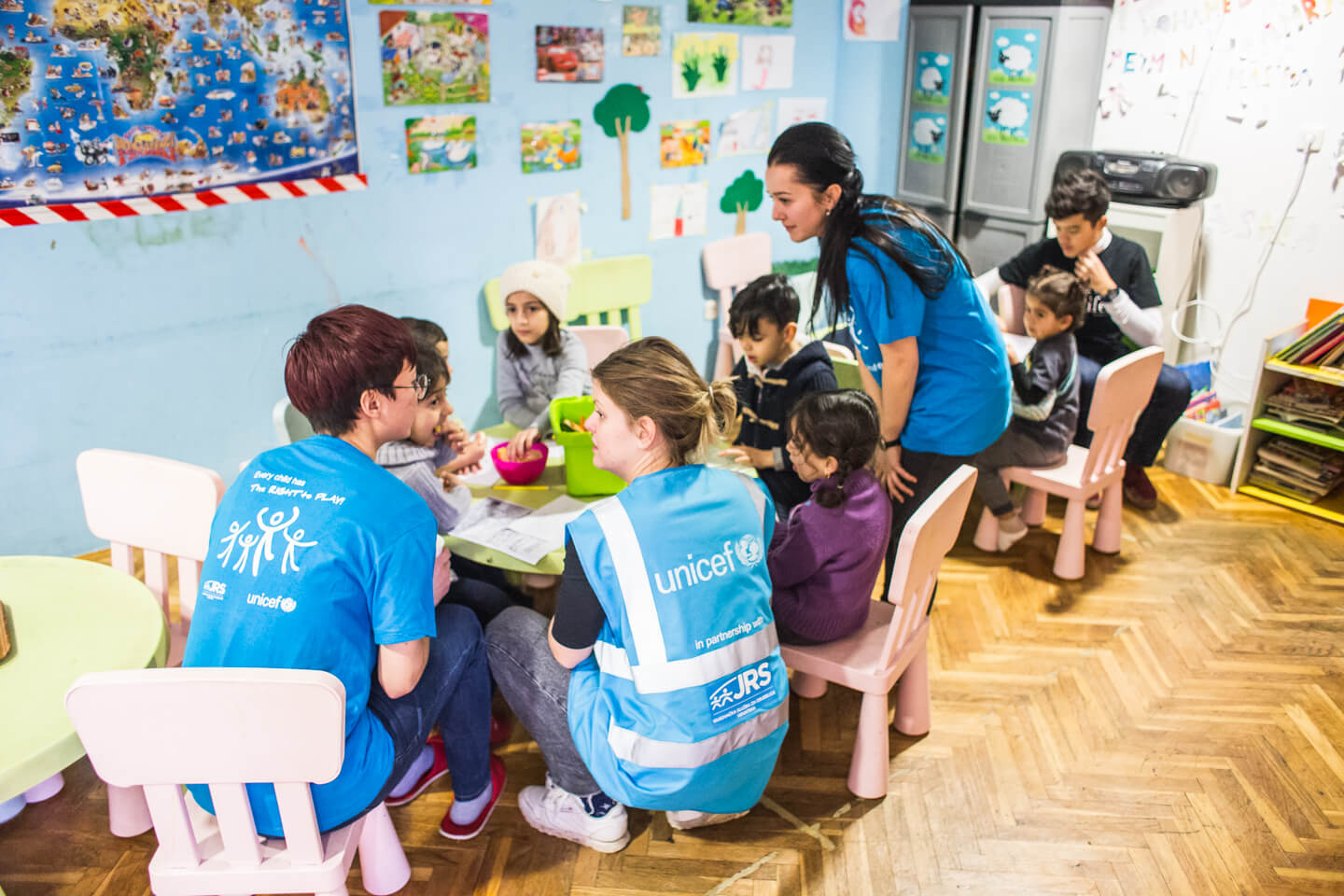
Kristóf Hölvényi | JRS Hrvatska
The handbook is only available for a few weeks, but Sandra hopes it will be useful to people who have never met refugee children in their work before. “When we held webinars, experts from schools said that it was very useful to them precisely because it would make it easier for them to work and understand the refugee children who went to school and started the integration process,” said Sandra.
Due to the unenviable situation with the virus, this project was interrupted and has not yet resumed, but all three of them hope things will sort out soon. Currently, the JRS / Jesuit Refugee Service is no longer in the Shelter on a project involving work with children. “I believe that all organizations and people who have worked or will work with refugee children serve children well and with dedication,” said Sandra. She also volunteered at the Center for Education in Pula, on World Youth Day in Madrid, Student Wave of help (Studentski val pomoći) when areas of Slavonia were flooded, at the event 72 hours without compromise, occasional volunteering for the Jesuit Refugee Service, and collecting donations and promoting activities for the Small Home of Subukia.
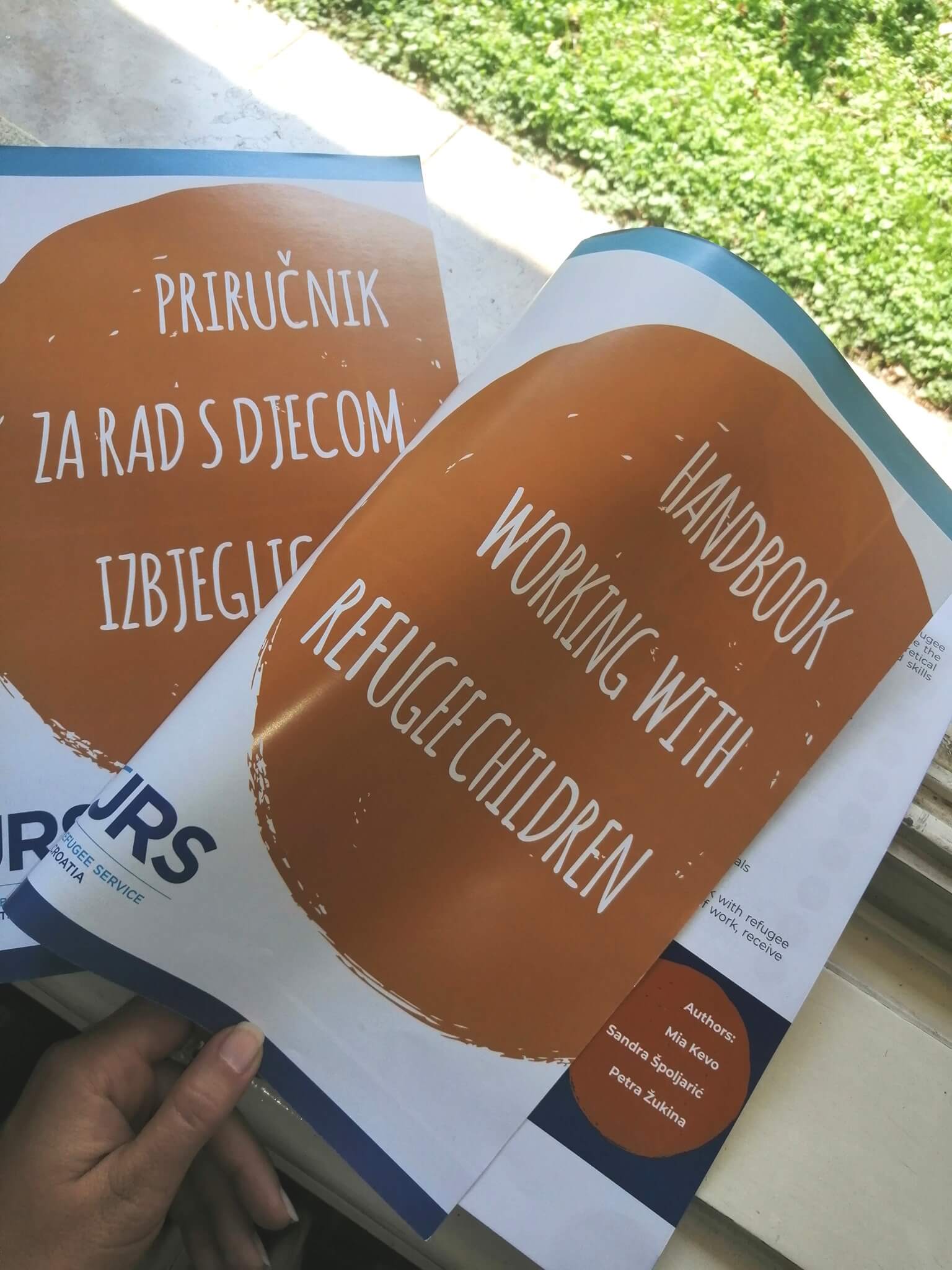
When working with the refugee children, Sandra was taught that every day is a new beginning and that parting does not mean goodbye but goodbye because the heart never remains untouched by the eyes of children who want to be accepted and equally valued. Sandra highlights that refugee children are just children like all other children and have the same needs. “I was surprised by the great motor skills, resourcefulness and the fact that the children spoke several languages… even in some situations they took on the role of “translator” for their parents,” said Sandra. Her wish is to work with children and for children.
You can contact the Jesuit Refugee Service Croatia by e-mail for the handbook.
For more, follow our lifestyle section.
For the latest travel info, bookmark our main travel info article, which is updated daily.
Read the Croatian Travel Update in your language – now available in 24 languages
Join the Total Croatia Travel INFO Viber community.

